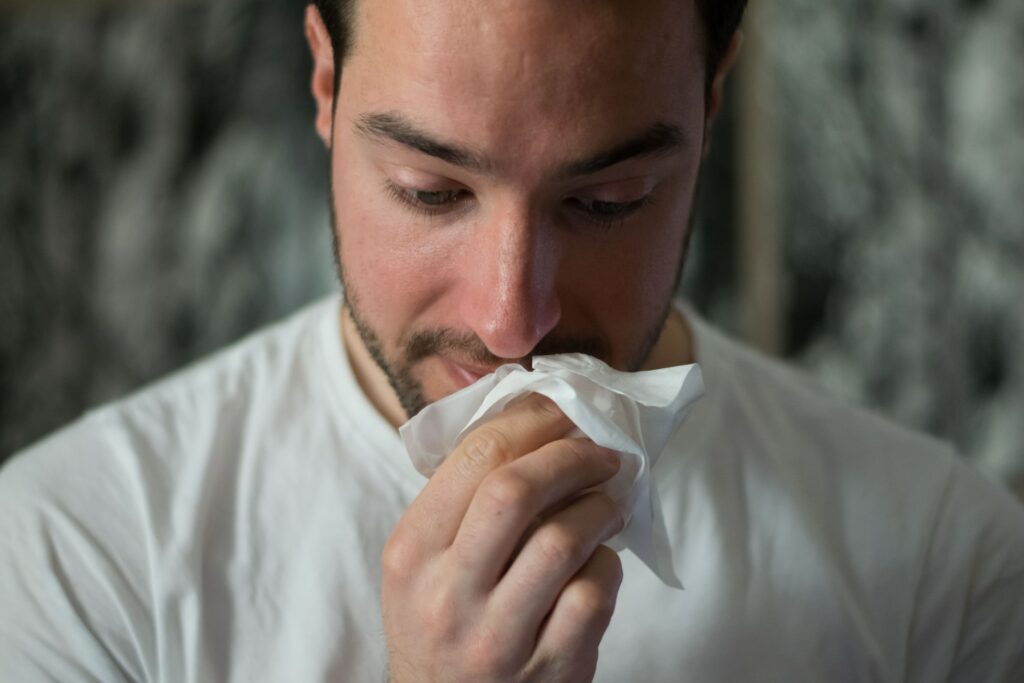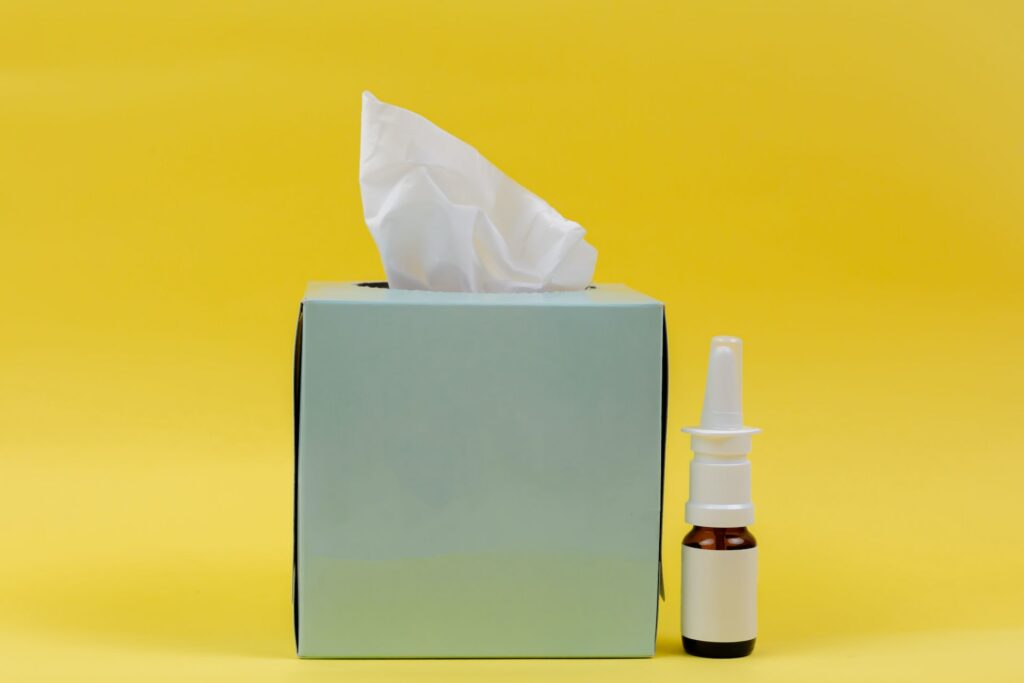


Having trouble sleeping because of your stuffy nose? Want to know how to sleep with a stuffy nose? Don’t worry, we’ve got you covered. In this article, we’ll explore tips and remedies to help you sleep soundly even with nasal congestion.
We’ll discuss various strategies to alleviate your stuffy nose, from elevating your head to using nasal strips and practicing breathing exercises.
To sleep more comfortably with a stuffy or runny nose, elevate your head. Lying flat with a stuffy nose can make it harder to breathe. By propping yourself up with pillows, you can reduce congestion and promote better airflow. Elevating your head helps to drain mucus from your nasal passages, allowing you to breathe more easily and sleep more soundly.
Another remedy for a blocked nose is using a decongestant. There are over-the-counter options available that can help relieve nasal congestion and open up your airways. However, it’s important to follow the instructions and consult with a healthcare professional before using any medication.
When experiencing nasal congestion, various factors can cause and worsen the stuffy nose sensation. Nasal congestion can occur at night, affecting your sleep quality and making it difficult to breathe through your nose.
One of the main causes of a stuffy nose is sinus inflammation, which can be triggered by allergies, common colds, or sinus infections. Additionally, lying down with stuffy nose can be uncomfortable, as it can cause fluid from your nose and mucus to accumulate in the nasal passages. Other factors that can contribute to a blocked nose at night include dry air, irritants like tobacco smoke, and certain medications.
Understanding the causes of a stuffy nose may help you take proactive steps to improve your sleep quality and breathe more easily at night.

Sleeping with nasal congestion can have detrimental effects on your sleep quality and overall health. When your nose is congested, it can make it difficult to breathe properly, leading to interrupted sleep and decreased sleep efficiency. This can leave you feeling tired and groggy during the day, affecting your productivity and mood.
Nasal congestion can also increase the risk of developing infections, as bacteria can thrive in the warm and moist environment of the nose. To alleviate the effects of nasal congestion at bedtime, you can try using saline nasal sprays or over-the-counter nasal decongestants.
Create a comfortable sleep environment to promote better rest and alleviate the effects of nasal congestion. Here are four tips to help you sleep better with a runny nose:
To find relief from nasal congestion, you can try incorporating other measures into your routine. Here are some additional remedies that may help relieve a stuffy nose and improve sleep quality:
| Remedy | Description |
|---|---|
| Do a Facial Steam | Inhale steam from a bowl of hot water to help loosen mucus in your nose. Add essential oils like eucalyptus or peppermint for added relief. |
| Lower Stress and Anxiety | Stress and anxiety can worsen nasal congestion. Engage in relaxation techniques such as meditation, deep breathing, or yoga to help reduce stress levels. |
| Practice Breathing Exercises and Nasal Breathing | Breathing exercises like alternate nostril breathing can help clear your nasal passages and improve airflow. Focus on breathing through your nose rather than your mouth. |
These measures can provide temporary relief and make it easier for you to breathe while trying to sleep. Remember to stay hydrated, avoid smoking and alcohol, and keep tissues nearby for easy access. If your nasal congestion persists or is accompanied by other symptoms like sleep apnea, it is recommended to seek medical advice for proper diagnosis and treatment.
If you’re dealing with nasal congestion and looking for natural remedies to help you sleep better, there are several options you can try.

When dealing with nasal congestion, over-the-counter remedies can provide relief and improve your sleep quality. Here are some options to consider:
1. Decongestant Nasal Sprays: These sprays, like Afrin and Neo-Synephrine, can help reduce swelling in the nasal passages and decongest your nose. Be sure to follow the instructions carefully and avoid long-term use, as it can lead to rebound congestion.
2. Antihistamines: Over-the-counter antihistamines, such as Claritin or Zyrtec, can help reduce allergy symptoms caused by common allergens like dust mites, pet dander, or mold. They can also help you sleep better by relieving nasal congestion and itchiness.
3. Saline Nasal Sprays: Saline sprays can help moisturize the nasal passages and clear mucus. They’re safe to use regularly and can provide temporary relief from nasal congestion.
4. Essential Oils: Certain essential oils, like eucalyptus or peppermint, can help open up your airways and relieve nasal congestion. Dilute the oil and apply it to your chest or use a diffuser to inhale the scent before bedtime.
Remember to consult with a healthcare professional before using any over-the-counter remedies, especially if you have any underlying health conditions or are taking other medications.
With the tips and remedies mentioned in this article, you can overcome stuffy nose that is keeping you up at night.
Remember, if your nasal congestion persists or worsens, it may be necessary to seek medical attention.